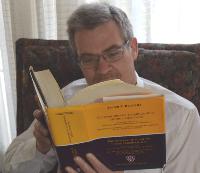| Pages in topic: [1 2 3] > | Poll: Do you agree to your translation fees being reduced on the basis of Trados repetition analysis? Thread poster: ProZ.com Staff
|
|---|
This forum topic is for the discussion of the poll question "Do you agree to your translation fees being reduced on the basis of Trados repetition analysis?".
This poll was originally submitted by Helen Godfrey
View the poll here
A forum topic will appear each time a new poll is run. For more informatio... See more This forum topic is for the discussion of the poll question "Do you agree to your translation fees being reduced on the basis of Trados repetition analysis?".
This poll was originally submitted by Helen Godfrey
View the poll here
A forum topic will appear each time a new poll is run. For more information, see: http://proz.com/topic/33629 ▲ Collapse
| | | | | I do not agree to it being imposed, but I use it as a basis myself | Aug 17, 2006 |
I voted "No", meaning that I do not agree to a translation agency telling me that I should reduce my fees on the basis of a Trados repetition analysis conducted by them. This is in particular the case since agencies rarely supply TMs, only ask for them.
However, with my regular end clients, I obviously give them reductions for extensive repetition of texts previously translated by me, that are in my Trados TMs, and I use the Trados analysis then as the basis for deciding how much di... See more I voted "No", meaning that I do not agree to a translation agency telling me that I should reduce my fees on the basis of a Trados repetition analysis conducted by them. This is in particular the case since agencies rarely supply TMs, only ask for them.
However, with my regular end clients, I obviously give them reductions for extensive repetition of texts previously translated by me, that are in my Trados TMs, and I use the Trados analysis then as the basis for deciding how much discount to give them. Working it out manually would take too long.
Astrid ▲ Collapse
| | | | Magda Dziadosz 
Poland
Local time: 21:56
Member (2004)
English to Polish
+ ...
I really don't know how to answer:
- I don't use Trados;
- I do give discounts for very regular clients, but based on the analysis made by the CATs I use.
Magda
| | | | Thomas Pfann 
United Kingdom
Local time: 20:56
Member (2006)
English to German
+ ...
| Not only Trados | Aug 17, 2006 |
Magda Dziadosz wrote:
I really don't know how to answer:
- I don't use Trados;
- I do give discounts for very regular clients, but based on the analysis made by the CATs I use.
Magda
Well, I suppose the poll could have been kept a bit more general. I suppose, Helen, who submitted the poll mainly uses Trados, so she didn't think of the other CAT tools.
I think if you use any CAT tools other than Trados to analyse files and leverage repetitions, you can still select the corresponding answer in this poll.
| | |
|
|
|
Muriel Vasconcellos (X) 
United States
Local time: 12:56
Spanish to English
+ ...
| It depends on the job, too | Aug 17, 2006 |
As a rule, I resent this imposition, because in principle I believe my skill lies in knowing when or when not to repeat a previous string. However, I have had texts that were highly repetitive, and in some cases I feel that a Trados-based reduction is fair and justified.
| | | | Heidi C 
Local time: 15:56
English to Spanish
+ ...
Using word count as a basis for charging a fee is a way to measure in some way the work done in a translation and agree to a fee. It is used because it is a good "neutral" and clear quantifier, that can be appreciated at the same degree by the translator and the client.
We do not charge less for "shorter" words or more for "long" words; we do not charge less for "easy" words that we translate without even consulting a dictionary or more for specialized or obscure terms; we do not c... See more Using word count as a basis for charging a fee is a way to measure in some way the work done in a translation and agree to a fee. It is used because it is a good "neutral" and clear quantifier, that can be appreciated at the same degree by the translator and the client.
We do not charge less for "shorter" words or more for "long" words; we do not charge less for "easy" words that we translate without even consulting a dictionary or more for specialized or obscure terms; we do not charge less for prepositions and articles that are repeated constantly in a text or charge more for irregular verbs or long badly written sentences...
Word count is a way to agree on a fee, and is averaging the complete work done in a translation: style, grammar, subtext, etc.... in addition to the expenses the translator has (electricity, equipment, ink, internet, etc...)
Allowing the repetition analysis from Trados affect your fee is just like charging less for articles and pronouns. The translator still has to work, use his/her knowledge and skills, time and resources.
Ok, using a CAT will save you some time (in some texts). But, did we start charging less when we switched from the typewriter to the computer?
I do not think translators should accept customers to make us think that by using any CAT tool we are "cheating" or working less. (And, form my experience, the ones who will ask you to reduce your rates because of using Trados are generally translation agencies, not direct clients). If we accept this, we are shooting ourselves in the foot and saying that a machine is replacing us. ▲ Collapse
| | | | Ruben Berrozpe (X) 
English to Spanish
| The reduction scheme is relevant too | Aug 17, 2006 |
I have basically seen two kinds of reductions: the "progressive one" (something like 100 - 70 - 40 depending on the kind of fuzzy match) and the "all or nothing approach" (where repetitions and 100% matches are not billed but all the rest is billed at full rate). I personally find the first one confusing and unfitting for most jobs, but I am more than willing to use the second one with my regular clients, especially if I have worked for a long time to build the TM. However, I should note that I ... See more I have basically seen two kinds of reductions: the "progressive one" (something like 100 - 70 - 40 depending on the kind of fuzzy match) and the "all or nothing approach" (where repetitions and 100% matches are not billed but all the rest is billed at full rate). I personally find the first one confusing and unfitting for most jobs, but I am more than willing to use the second one with my regular clients, especially if I have worked for a long time to build the TM. However, I should note that I have billed 100% matches to some clients too after warning them that the quality of previous work in the TM was not acceptable. Therefore this must be a flexible arrangement.
It also depends on whether the client or the translator sets the rates and reductions. If it's the client who does it, you can either accept them or walk away. It's not my policy anymore to offer these phased reductions, but I still work with clients with this kind of scheme and I don't feel I am losing money.
Rb ▲ Collapse
| | | | maryrose 
Local time: 06:26
English
+ ...
| direct clients yes, agencies no | Aug 18, 2006 |
I sometimes give reductions to direct clients when I re-use chunks of their TM in a translation. I especially do this for clients with whom I have a long and mutually profitable relationship and who pay promptly.
Agencies don't pay as well, for obvious reasons. However, many agencies behave as though their aim in life is to screw down translators' prices to the minimum and I do not see why I should assist them in this by agreeing to reduce my price still further.
Also... See more I sometimes give reductions to direct clients when I re-use chunks of their TM in a translation. I especially do this for clients with whom I have a long and mutually profitable relationship and who pay promptly.
Agencies don't pay as well, for obvious reasons. However, many agencies behave as though their aim in life is to screw down translators' prices to the minimum and I do not see why I should assist them in this by agreeing to reduce my price still further.
Also, we make a significant investment when we purchase CAT tools and we don't do this, I believe, only to have the benefit of it reduced by having to accept lower fees.
Cheers to all
Maryrose ▲ Collapse
| | |
|
|
|
Reed James
Chile
Local time: 17:56
Member (2005)
Spanish to English
| A translated word is a word paid in full | Aug 18, 2006 |
I always tell agencies that I will accept no discounts for repetitions no matter what. Many times, since they have already contacted me, they will hire my services anyway.
Why settle for anything less?
Reed
| | | | Brandis (X)
Local time: 21:56
English to German
+ ...
| I had opted for "YES" | Aug 18, 2006 |
Hi!
Normally in such cases the client asks whether I use trados and supplies a pre-finished TM. In such cases I agree with the trados match. So I quote for example €x.xx per word with out any matching, which I must have at all costs, when the trados matching comes I scale price to 100% which is 2x €x.xx price, while getting back to my base calculation price, which I must have at all costs. This is only an example to reflect a certain extra must be calculated else we end with USD0.03 pe... See more Hi!
Normally in such cases the client asks whether I use trados and supplies a pre-finished TM. In such cases I agree with the trados match. So I quote for example €x.xx per word with out any matching, which I must have at all costs, when the trados matching comes I scale price to 100% which is 2x €x.xx price, while getting back to my base calculation price, which I must have at all costs. This is only an example to reflect a certain extra must be calculated else we end with USD0.03 per word prices. Best Brandis ▲ Collapse
| | | | IanW (X)
Local time: 21:56
German to English
+ ...
| What is the point ... | Aug 18, 2006 |
... in including the option "Don't have Trados" in this survey? Why not instead restrict this particular survey to people using Trados and then it might yield some useful information? Perhaps the moderators who oversee these surveys could take a quick crash course in market research - I don't mean this in a nasty way, I really do think it would make a difference.
| | | | | Yes I do, but | Aug 18, 2006 |
It's the one thing I hate about Trados. If you do not accept the job mostly goes to somebody else. I recently had a client who wanted to pay 0 for repetitions. This was the very first time I declined a job.
Kindest regards
Gabriella
| | |
|
|
|
I use Wordfast, not Trados, but the principle is the same and so I just ignored the "don't have Trados" bit. I agree it's a badly designed poll, though - "TM repetition analysis" and "don't use a TM" would have been more useful.
| | | | | I agreed once and won't again | Aug 18, 2006 |
It's a semi-regular client, so I won't suddently change my agreement with them, but won't agree to that again.
After first translations I saw it is really not fair, as in my language one English word can have of many grammar forms (eg. cases). I have to change it manually, and sometimes it easier to type, then jump here and there to change few characters at ending of noun or verb.
So in the end the work is the same and pay sometimes half less. There rarely happen 100% same sen... See more It's a semi-regular client, so I won't suddently change my agreement with them, but won't agree to that again.
After first translations I saw it is really not fair, as in my language one English word can have of many grammar forms (eg. cases). I have to change it manually, and sometimes it easier to type, then jump here and there to change few characters at ending of noun or verb.
So in the end the work is the same and pay sometimes half less. There rarely happen 100% same sentences and even slight change in sentence can change forms of words.
If there are man repetitions in sentences, or segments of sentences, then ok, but if they could be words, then no. Never again. I don't see a reason to work for half free.
Anni
PS. I don't use Trados, but OmegaT and Heartsome Xliff Translation Editor. ▲ Collapse
| | | | Williamson 
United Kingdom
Local time: 20:56
Flemish to English
+ ...
| Would you agree to reduce your rates for using dragon dictate? | Aug 18, 2006 |
NO, no and no.
When the translator's market became saturated, the late company Trados Gmbh imposed that scheme to sell its products to companies with the argument that it was a tool to reduce their translation costs.
It used its weight to impose this on translators.
Déjà Vu (Atril), Wordfast and Sdlx, the other players on the oligopoly market, did not use this as a selling argument.
Now that Trados will gradually be phased out by Sdlx there is not so much emphasis on th... See more NO, no and no.
When the translator's market became saturated, the late company Trados Gmbh imposed that scheme to sell its products to companies with the argument that it was a tool to reduce their translation costs.
It used its weight to impose this on translators.
Déjà Vu (Atril), Wordfast and Sdlx, the other players on the oligopoly market, did not use this as a selling argument.
Now that Trados will gradually be phased out by Sdlx there is not so much emphasis on that scheme or is there?
Unfortunately, that scheme has been accepted by so many translators that the use it for a basis to calculate the price for their work. Contradiction?
CAT tools are productivity tools, just like voice-recognition. I don't give discounts for voice-recognition and I don't give discoutns for CATs.
Would you agree to give a discount for voice-recognition, another productivity enhancing tool.
I wonder what would happen if interpreters had to give discounts for every word a speaker repeats several times?
[Edited at 2006-08-18 08:59] ▲ Collapse
| | | | | Pages in topic: [1 2 3] > | To report site rules violations or get help, contact a site moderator: You can also contact site staff by submitting a support request » Poll: Do you agree to your translation fees being reduced on the basis of Trados repetition analysis? | Trados Business Manager Lite | Create customer quotes and invoices from within Trados Studio
Trados Business Manager Lite helps to simplify and speed up some of the daily tasks, such as invoicing and reporting, associated with running your freelance translation business.
More info » |
| | Anycount & Translation Office 3000 | Translation Office 3000
Translation Office 3000 is an advanced accounting tool for freelance translators and small agencies. TO3000 easily and seamlessly integrates with the business life of professional freelance translators.
More info » |
|
| | | | X Sign in to your ProZ.com account... | | | | | |














